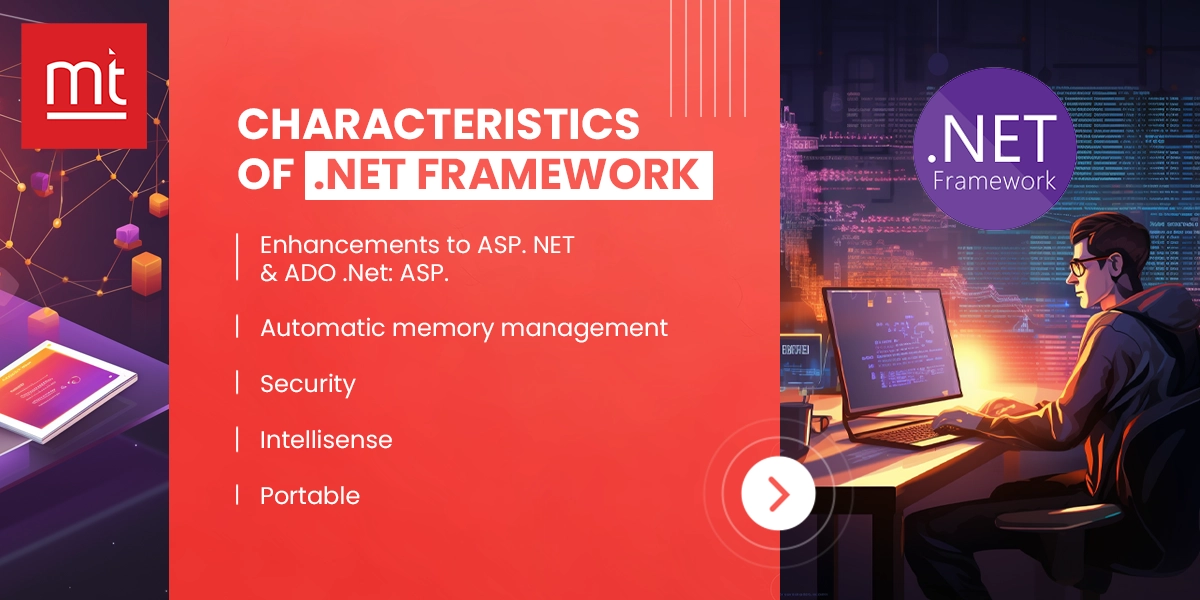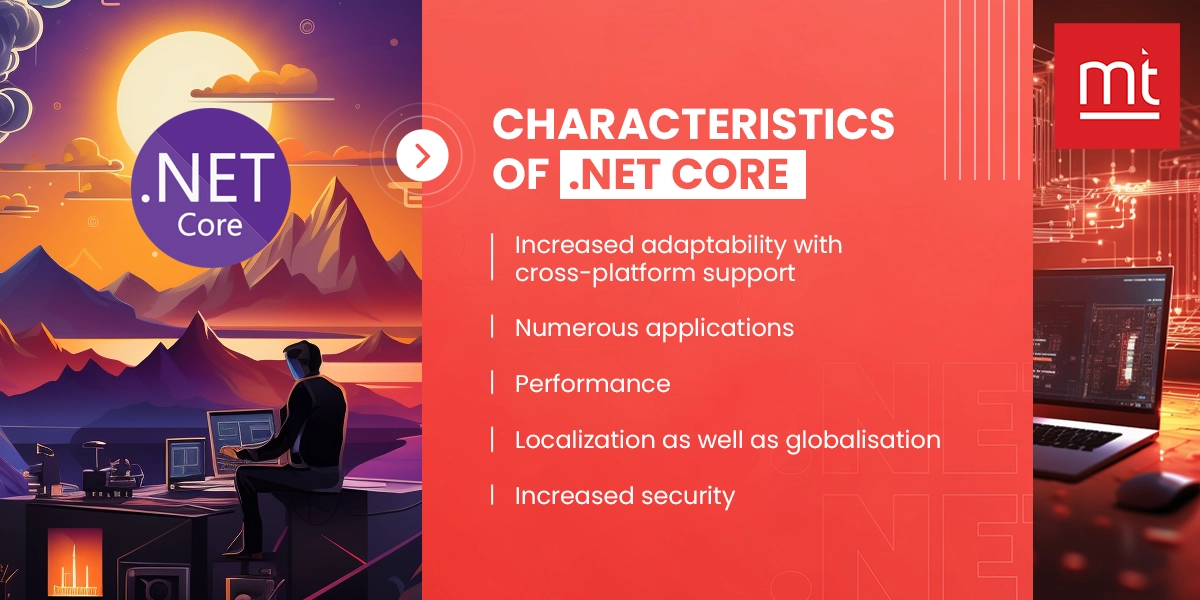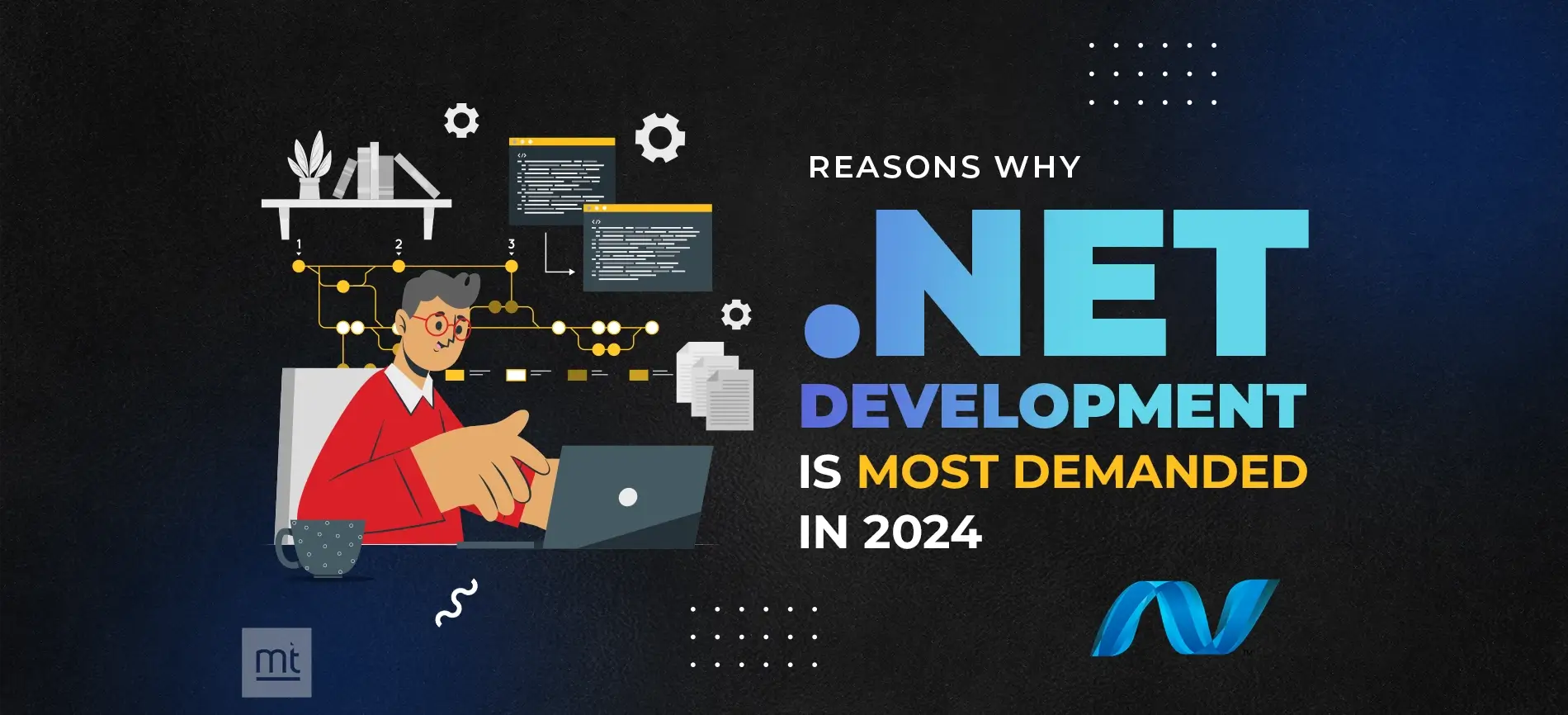Get Free Trial Week Developer Access, Try Before You Hire. Click Here to Claim Now
Introducation: .NET Core vs .NET Framework
Web development has evolved in the past decade and a half. With new technologies, the latest tools and shifting mindsets, the transition was an obvious outcome. At the same time, developers are handed tools that make it easier for them to deliver solutions faster and with greater ease.
Today, web developers have embraced no-code tools and web standards to enhance the speed of delivery. It is a must to deliver highly responsive solutions that can be accessed via mobile. Moreover, developers must plan the security of the website before developing them.
Businesses need to consider suitable partners and the appropriate technologies to support their development needs. ASP.Net facilitates them with the right tools, customization options and a range of services to augment their business.
Additionally, it is compatible with multiple platforms, making it the best choice for a wider reach and better visibility.
ASP.Net has also evolved since its inception. We have the ASP.Net framework that is majorly used to develop applications. It is a full-fledged platform with relevant tools and technologies.
You can also use ASP.Net core, a more upgraded and evolved version of the framework, to build cross-platform applications. As a developer, you might need to choose between the framework and Core to build your web application. The choice will depend on the deployment, performance and speed requirements posed by your client.
Here, we will look at the differences between the two platforms to build a more reliable tech stack for future application development.
Brief Overview of .Net Core and .Net Framework
You must define the technology stack for your app development during the planning stage. We will compare two of the most favorite platforms to help you plan your tech infrastructure more easily.
What is .Net Framework?
ASP.Net framework offers an array of tools and technologies that can help you build web applications. You will also get the infrastructure and IDEs to build the solution. It also includes pre-built templates, pre-coded components and other literature that can accelerate your development speed.
The ASP.Net framework’s architecture comprises of
- Common language runtime, which allows developers to ensure runtime efficiency. It will also help with memory allocation, garbage removal and type safety features to improve your coding abilities.
- Class library that helps you identify and allocate APIs for the application. Integrating these APIs can help you enhance the reading/writing abilities of your development team.
Characteristics of .Net Framework

1. As the code written in the .Net framework is interoperable, you can easily create reusable and readable code for the applications.
2. You get a common platform where you can write programs using different programming languages. This will allow your program to work on different devices and networks.
3. With the CLR environment in the .Net framework, you can execute the code faster and eliminate the performance related bottlenecks
4. With the new version of .Net framework, you can create multithreaded and asynchronous code that can simplify programming.
5. The garbage manage in .Net framework allows you to create programs without worrying about the memory management or resource handling.
Why Use .Net Framework
1. It is fully-equipped with all the tools and libraries you need to build web applications for your needs
2. It offers a highly secure and stable environment that can help build robust applications
3. It is easy to integrate with other Microsoft applications to integrate the essential features
4. As it extends the MVC architecture, you can easily separate the model and view layer for better coding.
What is .Net Core?
ASP.Net Core is an open-source platform helping developers reach the maximum audience via cross-platform development. You can customize the code over cloud technology to facilitate better experiences for the user.
You can use the in-built libraries and pre-coded templates to implement modern technologies like AI and IoT in your web application.
You can install the NuGet packages to enhance the features and add advanced solutions. The architecture and overall structure suggest excellent support for modernized application development.
- IoC Containers: This will help develop automatic dependency injections to improve testing and maintenance. You will be able to extend the security of your applications.
- Integrations: You can extend the application’s capabilities by integrating it with modern UI frameworks such as AngularJS and ReactJS.
In .Net Core, you don’t get a separate runtime and SDK to build your applications. As a result, you can build extensive frontend and backend solutions.
We have seen the two frameworks in detail. Let’s understand the differences to ensure making the right choice.
Characteristics of .Net Core

- As it is free and open-source, you can easily access the coding projects on the repositories and begin developing a solution
- You can build applications that run through different operating systems and platforms to enable better
- It is easy to share the .Net Core code using the coding standards, thus ensuring code access across languages and frameworks
- It can help develop modern applications with greater efficiency
Why Use .Net Core
- It can be used when you want to build cross-platform ASP.NEt applications for your business.
- It is simple and easy to use or learn. Moreover, having source code access allows you to create applications to meet your individual needs
- It offers excellent performance and speed that can enhance your website’s usability and application’s engagement
- The extensive community can help you with the essential ecosystem and improve your application.
Advantages and Disadvantages of .Net Framework
Pros | Cons |
You can easily break down the large code into manageable pieces for better debugging and quality management | It doesn’t extend to multiple platforms |
Works with Visual Studio IDE that can help you plan and write your code to match the requirements | You might be difficult to introduce customizations to the code. |
Extends better security and helps you keep the code stable and robust | It is challenging to maintain the code created in .Net framework. |
Advantages and Disadvantages of .Net Core
Pros | Cons |
It works across platform offering extensive code capabilities | It is not a very secure platform to enable stable coding. |
Easy to deploy the code using different methods. You can easily maintain the source code and customizations | |
You can create diverse applications with the platform. |
Read More: Top 10 Web App Ideas That Will Work Wonders In 2024
.Net Core vs .Net Framework: What’s the Difference?
We will be looking at the different crucial factors to determine how these platforms differ from each other. Despite being from the same parent, they offer different types of solutions. Each one can be used in specific solutions only.
1. Deployment Methods
.Net Framework: If you are planning to deploy using the framework, you need to ensure the appropriate version. If an older version is installed on the machine, it may not cooperate with the deployment standards.
.Net Core: The applications developed using this platform are self-contained. As a result, you don’t need to enter into specifics to complete the deployment.
Best Choice: As your dependencies on versions are removed with .Net core, it is a good platform for deploying web applications.
2. Performance
.Net Framework: As the machine is not entirely cloud-based, it would be difficult to scale the application. Moreover, you need to ensure the proper version of the framework. As a result, scaling can hamper the performance.
.Net Core: As it uses fewer actual machines and several virtual environments, you can scale your application while keeping up with the performance. In case your business app needs a high-performance, you must run ASP.Net applications with .Net core
Best Choice: If you plan to run several microservices into your application and require high-performing solutions, choose .Net core. It extends the best performance to the user.
3. Experience Requirements
.Net Framework: As developers are required to build the application using Visual Studio, you need experience. Hiring Visual Studio specialists is a must.
.Net Core: This offers more flexibility to the users. You can choose from Visual Studio, VS Code and other IDEs that offer extensive support for multi-platform development.
Best Choice: .Net Core is an inclusive and flexible platform. It offers greater options to the developers to build the solutions. You can choose this if you don’t have the in-house expertise to build apps with Visual Studio.
4. Languages Supported
.Net Framework: There is a slight rigidity in the choice of programming languages offered by the .Net framework. You can only use C# or VBNet to code your applications.
.Net Core: Owing to a more modular architecture, you get to work with diverse programming languages. You can choose the language that best fits your expertise and in-house team’s experience.
Best Choice: You get a lot of flexibility with .Net Core in terms of choosing the programming language. It can help you build your app faster and launch it before anyone else does.
5. Choosing the Version
.Net Framework: As it is a Windows-only framework, you will be working with Windows-based versions only.
.Net Core: This platform is open to multi-platform development. As a result, you might be able to use different platform and OS versions to develop applications.
Best Choice: You must choose .Net Core as it offers greater flexibility in terms of platform development and versions.
6. Planning Installations
.Net Framework: You must install it as a single package to gain the tools and infrastructure. Make sure you add the appropriate runtime conditions while installation for better functionality.
.Net Core: As the platform is independent, you need to install for each OS or framework individually.
Best Choice: Being platform-agnostic, you might find it easier to install and use the .Net Core platform.
7. Augmenting the Security
.Net Framework: This framework comes with code access security, which means you need authorisations to work with the source code.
.Net Core: Your source code is vulnerable as there is no source code access security available.
Best Choice: As the source code is secure in this case, you will notice that there are fewer vulnerabilities with .Net Framework.
8. CLI Tools
.Net Framework: If you want to work with CLI tools to create efficient code and enhance the system’s abilities, you should use the .Net framework. It comprises CLI-intensive tools
.Net Core: This platform majorly works with IDE which can enhance the app development and speed up deliveries.
Best Choice: If you want to create legible code, working with CLI is a good idea. .Net Framework offers an edge over the .Net core in this case.
.Net Framework or .Net Core: Our Final Verdict
If you are contemplating which platform to choose for your web development, these pointers can help:
- .Net Core is best-fit for high-performing and scalable applications. If you are planning multi-platform development, you must choose the .Net Core platform
- In case you have an existing ASP.Net application, you must choose the .Net framework. It is also a good-fit app where you need to keep the source code safe.
How to Choose a Suitable Platform?
When you plan web development, it is crucial to decide on the tech stack. This will help enhance the solutions. Let’s look at all the factors that can help you choose the appropriate platform.
1. Expertise with the Framework: Whether you are choosing an IDE, framework or platform to build the application, you need expert resources. They must be well-versed in the platform. From understanding the pre-built libraries to knowing the programming languages compatible with the framework, they should have all the requisite knowledge. This would help you get an edge over the competition with your application.
2. Scalability: It is equally important for the framework to be scalable. Whether you are adding microservices or growing the company, you might want to ensure seamless performance. The web app development platform should support your needs for scalability and performance with the right infrastructure.
3. Security: We are surrounded by digital crime. The only way to reduce it would be by enhancing the security of the applications. It is crucial to find a platform that would support your security requirements and ensure zero risks.
Conclusion
Whether you want to go with .Net Core or .Net framework entirely depends on the type of application you want to develop. If you want a wider reach with good performance, you must choose .Net core. However, if you want to upgrade a .Net application, you can go with the framework. To minimize the code risks, you must choose the .Net framework.
ManekTech is an expert web development company that caters to modernized application development needs. Hire .Net developer to avail the best solution for your business. Connect with our business team to discuss the feasibility of your idea and devise the best solution.
Subscribe to Our Newsletter!
Join us to stay updated with our latest blog updates, marketing tips, service tips, trends, news and announcements!






















